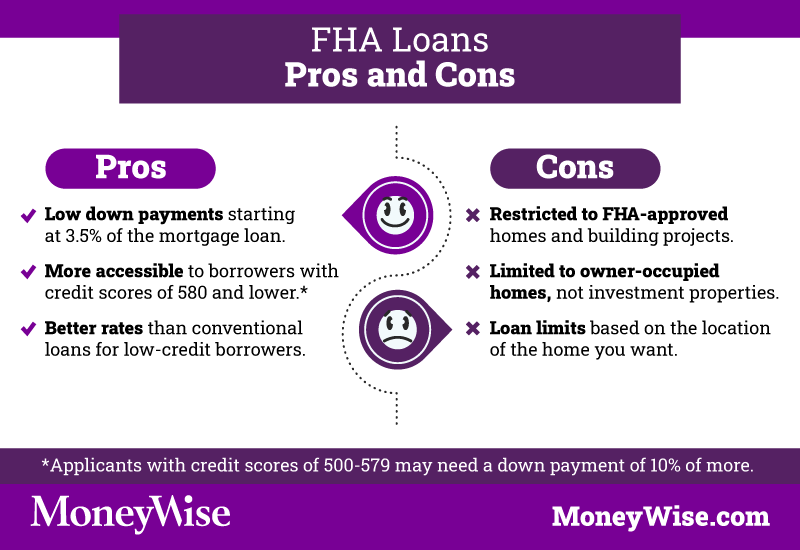FHA Home Loans: Flexible Financing Solutions for Diverse Demands
FHA Home Loans: Flexible Financing Solutions for Diverse Demands
Blog Article
Home Mortgage Demystified: An In-depth Assessment of Car Loan Programs Tailored to Fit Your Economic Situation and Goals
Browsing the landscape of home loans typically presents an overwhelming difficulty, compounded by a myriad of programs made to fulfill varied financial requirements. Comprehending the distinctions between adjustable-rate and fixed-rate mortgages, in addition to government-backed alternatives like FHA and VA financings, is critical for making informed choices. Each program uses special benefits customized to details circumstances, yet the complexity of qualification needs and rate of interest can obscure clearness. As we discover these complexities, one need to take into consideration just how to align these choices with personal economic goals to open one of the most useful path to homeownership.
Comprehending Home Mortgage Basics
Although numerous individuals aim to homeownership, comprehending the basics of mortgage is vital to making notified economic choices. A mortgage, additionally referred to as a mortgage, is a financial product that allows individuals to obtain money to buy property. The customer is required to repay the loan amount, together with rate of interest, over a set period, usually varying from 15 to 30 years.
Secret components of mortgage consist of the principal, which is the quantity obtained, and the rate of interest, which establishes the price of loaning. Lenders analyze numerous variables, such as credit score earnings, score, and debt-to-income ratio, to identify qualification and funding terms. In addition, borrowers should understand the significance of deposits, which can influence lending approval and affect month-to-month payments.
Recognizing funding amortization is additionally necessary; this refers to the progressive decrease of the loan equilibrium gradually with normal repayments. By grasping these essential principles, possible property owners can browse the home mortgage landscape more properly, ultimately bring about better financial outcomes and an even more effective home-buying experience.
Kinds of Home Loan
Home loan car loans can mainly be classified right into fixed-rate and adjustable-rate home loans (ARMs) Fixed-rate mortgages offer a constant passion rate and regular monthly payment over the finance's term, offering stability, often for 15 to 30 years.
On The Other Hand, ARMs have rate of interest prices that rise and fall based on market problems, usually starting less than fixed-rate choices. These rates can adjust periodically, potentially increasing month-to-month payments over time. Consumers who prepare for re-financing or relocating prior to significant price changes may find ARMs helpful.
In addition, government-backed finances, such as FHA, VA, and USDA car loans, satisfy details demographics and use various benefits like reduced deposits and adaptable debt requirements. Standard fundings, not guaranteed by the federal government, usually need higher credit history however can provide affordable prices for monetarily secure customers - FHA home loans. Understanding these financing types allows potential property owners to pick the home mortgage that aligns ideal with their monetary situation and long-term objectives
Key Qualification Requirements
Navigating the eligibility demands for a home loan is an important action in the home-buying process. Recognizing these needs can significantly improve your application and boost your chances of authorization.
The primary elements affecting qualification include credit rating, income security, debt-to-income (DTI) ratio, employment background, and deposit quantity. A lot of lenders require a minimal credit report of 620 for traditional finances, while government-backed loans may have more lenient requirements. A stable income, showed via consistent employment or self-employment records, is essential for lenders to assess your capacity to settle the funding.
The DTI ratio, which contrasts your regular monthly financial debt settlements to your gross month-to-month earnings, usually must not surpass 43%, though some lenders might allow higher ratios in specific situations. Additionally, the size of your deposit can impact eligibility; while a bigger deposit might boost your opportunities, specific programs offer options for marginal down settlements.
Lastly, loan providers will certainly examine your overall economic account, consisting of readily available possessions and obligations, to ensure you are economically efficient in maintaining homeownership. Familiarizing yourself with these crucial qualification needs will certainly empower you in the mortgage application journey.

Rate Of Interest Explained
Understanding the ins and outs of rate of interest is basic to making educated choices in the home car loan procedure. Rate of interest represent the expense of obtaining money and are shared as a portion of the funding quantity. They can dramatically impact your monthly home loan payments and the general expense of your home mortgage.
Rate of interest can be categorized right into taken care of and flexible rates. Repaired prices remain consistent throughout the car loan term, giving predictability in regular monthly repayments. Alternatively, flexible rates vary based upon market problems, which can cause reduced initial repayments however may boost with time.
A number of aspects influence rates Continue of interest, including the debtor's credit scores rating, car loan term, and dominating economic conditions. Lenders analyze these factors to establish the danger linked with providing to a specific customer. Generally, a greater credit report score can lead to reduced rate of interest rates, while longer loan terms might cause greater rates.
Furthermore, broader economic signs, such as inflation and Continued financial plan, play an important function fit rates of interest. Recognizing these aspects allows borrowers to much better browse the loaning landscape and select choices that align with their economic objectives.
Selecting the Right Financing Program
Picking the suitable funding program is vital for borrowers intending to maximize their funding options. With different lending kinds offered, consisting of fixed-rate, adjustable-rate, FHA, and VA financings, understanding the subtleties of each can considerably impact long-lasting financial wellness.
Customers must initially examine their financial situation, consisting of credit report, earnings stability, and debt-to-income proportions (FHA home loans). A fixed-rate home loan provides predictability with constant month-to-month repayments, perfect for those preparing to stay in their homes long-lasting. On the various other hand, adjustable-rate mortgages might provide reduced first rates, appealing to purchasers that anticipate moving within a few years
In addition, government-backed loans such as FHA and VA choices can be advantageous for novice buyers or experts, as they commonly need lower down settlements and have more tolerant credit report requirements.

Verdict
In conclusion, navigating the complexities of home finances calls for a complete understanding of numerous home mortgage programs and their one-of-a-kind functions. By assessing private financial situations and goals, possible borrowers can make enlightened choices concerning the most suitable finance choices.
Fixed-rate mortgages provide a regular rate of interest price and month-to-month payment over the car loan's term, providing stability, commonly for 15 to 30 years.Furthermore, government-backed car loans, such as FHA, VA, and USDA lendings, cater to certain demographics and provide various benefits like lower down payments and flexible debt needs. The majority of loan providers need a minimal debt score of 620 for traditional loans, while government-backed financings might have more lax standards. Dealt with rates stay continuous throughout the loan term, giving predictability in regular monthly payments. Generally, a higher debt rating can lead to reduced interest rates, while longer funding terms may result in higher rates.
Report this page